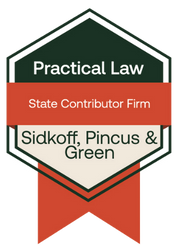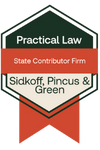Business Lawyer in Philadelphia: Ex-Employee Alleges Wrongful Conduct in Counterclaim

Lawing Financial has accused a former employee of conspiring with a co-worker to steal trade secrets, then opening up a competing business. According to Lawing Financial’s lawsuit, the defendant initially helped the company establish its business. Then, he and his co-worker allegedly conspired to steal trade secrets, including client lists, from the firm before resigning without notice to immediately open a competing business. He had been employed by the company for seven years before resigning.
The defendant has denied all accusations of wrongdoing and filed a counterclaim, alleging that he left the company because, among other things, he was not paid compensation he was entitled to. He is also suing Lawing Financial for defamation of character, libel, slander and tortious interference of contracts.
Philadelphia Business Lawyers at Sidkoff, Pincus & Green Pursue Compensation for Those Victimized by Wrongful Acts and Business Torts
If you are in need of a business lawyer in Philadelphia, the team at Sidkoff, Pincus & Green has extensive experience in business tort litigation, including copyright or trademark infringement, fraud, breach of fiduciary duty, unfair competition and misappropriation of confidential information. To schedule a consultation, call us at 215-574-0600 or fill out our online contact form today. With offices conveniently located in Philadelphia, we represent businesses throughout Pennsylvania and South Jersey.



















